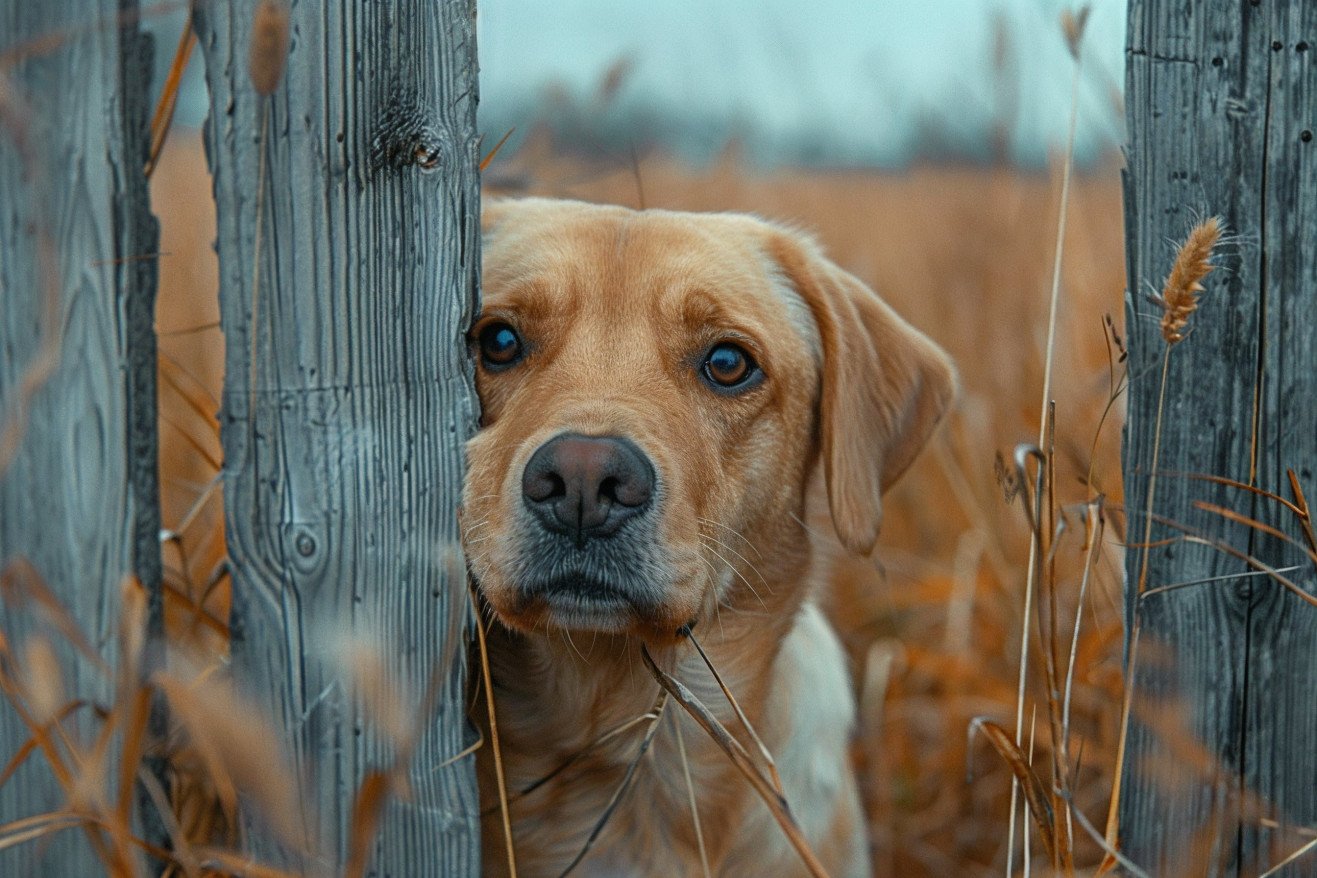Why Do Dogs Run Away? Exploring the Motivations Behind Canine Escape Artists
22 May 2024 • Updated 22 May 2024

Why do dogs run away from their owners and homes, putting themselves in potential danger despite being domesticated and seemingly happy companions? There are a number of reasons dogs run away, including natural instincts such as ancestral roaming behaviors, anxiety and stress, the scent of something interesting on the wind, and the excitement of the chase and the unknown.
We'll take a look at studies from a range of disciplines - from animal behavior and psychology to genetics and neuroscience – that have investigated the many factors that contribute to dogs leaving their homes. This knowledge can help dog parents better understand why their dogs may be motivated to run away and in turn, help them find ways to avoid escapes and further strengthen their relationships with their furry friends.
Why do dogs run away?
Breed Predispositions and Age
There are certain dog breeds that are more likely to run away based on their genetics and backgrounds. Herding breeds such as Border Collies and Australian Shepherds have a natural urge to roam and patrol, as explained in this article from the American Kennel Club. Hunting breeds like Beagles and Bloodhounds have a strong sense of smell and prey drive, so they are more likely to wander off if they catch a scent that interests them, according to this blog post. Terrier breeds such as Jack Russell Terriers are independent and adventurous, which is a trait that is noted in this article as a reason they may wander off to explore.
Age is another factor - puppies and adolescent dogs are more likely to run away because they have not yet been trained to control their energy and curiosity. This is because "they likely haven't been taught to wait at the door yet," according to the AKC. However, older dogs can also be more likely to run away, especially if they are experiencing cognitive decline from dementia or other age-related issues like hearing loss. With certain breeds being more predisposed to running away and puppies and older dogs having their own unique reasons for needing more supervision, it's important to understand these risk factors when it comes to preventing lost dogs.
Training and Prevention Strategies
Proper training and socialization from an early age can help reduce a dog's tendency to run away, according to this MasterClass article. It is important to teach a dog reliable recall commands, such as 'come' and 'stay,' in order to maintain control when the dog is off-leash, says the American Kennel Club. Meanwhile, ensuring that a dog gets enough exercise, mental stimulation, and enrichment can help prevent boredom and the urge to roam, according to AAHA.
Desensitizing dogs to certain stimuli, such as loud sounds, can help dogs learn to better manage their fear and anxiety, which can lead to running away, explains Wag!. Meanwhile, spaying or neutering can help reduce the hormonal motivation to roam and mate in dogs that have not been fixed, according to AAHA. By making sure that a dog's needs are met through training, exercise, and environmental adjustments, pet parents can build a stronger relationship with their dogs while also reducing the likelihood of running away.
Making Your Home and Yard Safe
Having a safe, secure yard with a good fence is one of the most important ways to prevent dogs from escaping and running away, according to the American Kennel Club. In addition, coyote rollers or inward-tilting extensions can help prevent climbing, and an L-footer or concrete footer can help prevent digging, says AAHA.
In addition, visual barriers or blocking sightlines can help prevent dogs from patrolling fence lines. Airlock gates, secure latches, and GPS tracking collars can help ensure that dogs stay in their yards.
Coping With Fireworks and Thunderstorms
Dogs' sensitive hearing can make loud noises such as fireworks and thunderstorms especially traumatic, according to Annie's Apothecary. These loud, sudden noises can be especially difficult for dogs to cope with because they can cause the animal's fight-or-flight response to kick in, leading to panic and the desire to escape, reports Inverse.
In general, dogs can be helped to feel more secure during these events by being kept indoors and given a safe, secure place to stay, says the American Kennel Club. In addition, dogs can be desensitized to the sound of fireworks and other loud noises and their anxiety can be reduced through the use of anxiety wraps and medication, according to Tractive. In addition, making sure a dog has proper identification and even GPS tracking can help ensure a dog can be located if they do escape during these times of stress.
What to Do If Your Dog Gets Loose
If your dog does get loose, remain calm and act fast, according to The Family Handyman. First, search the area and nearby places that your dog may have gone to, including under porches and in your neighbors' garages.
Then, call local shelters, animal control, and your neighbors to let them know your dog is missing, and be sure to provide a detailed description and photo of your dog, says PetRadar and iHeartDogs. You should also make and distribute 'lost dog' posters with your contact information and possibly a reward, according to Dogster.
Use social media and other online tools to help you find your dog. Post on your personal social media accounts and community pages and apps, like Nextdoor, which is a social media platform for neighborhoods, says The Family Handyman.
Conclusion: Building a Stronger Human-Canine Bond
Knowing the reasons why dogs run away is important for being a responsible pet owner. While some of the reasons for running away may be breed-specific or related to a dog's age, there are also things that can be done to prevent a dog from running away, including training, exercise, and environmental management.
Dogs' acute senses can make them more susceptible to noise phobias, which can cause them to run away. While this fear can be managed by creating a safe space and using calming products, it's also important to know what to do if a dog does run away, including acting quickly and using social media to help find them.


